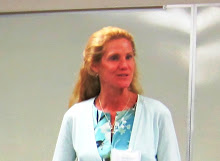Yes I was joking but only about the tickets covering revenue.So, it was imperative that I responded with this:Middleborough is one of the other communities that is in the mix for hosting a casino. They recently completed a very thorough study of the potential impact of a casino in their town. I think the results are just as biased as many of the anti-casino research you are citing, but I also believe it adds a little balance to the conversation.
http://www.middleborough.com/General/Impact%20and%20Mitigation%20Report.pdf
Feel free to visit the above link and see that while there are potential negatives to a casino placement for both the host community and the surrounding cities and towns, there are also some very real and very important benefits.
I am only going to address one of your most direct attacks on a casino placement in Palmer. You state that in CT the student population in the surrounding communities jumped enormously after the opening of the casinos. What you fail to refer to is the very rural character of both Foxwoods and Mohegan Sun's communities. Being remote, the casino had to look far outside the local community to staff. As a result overtime folks that were employed in the casinos moved closer to both reduce their commutes and improve their quality of life. Your comments make no mention of the tax base impact this had or the reasoning for it's occurrence. Once again it's not a complete argument only designed to put fear into people's lives where non-need be. In Palmer conversely the infrastructure will and population density will make the likelihood of a huge influx of new students substantially lower than in CT.
The rest of your post is more of the same fear-mongering and distortions of fact. Read the Middleborough report and I think you can see that the gains will out weigh the costs.
Finally as I said in my first post, if Palmer and the local communities aren't savvy enough to make arrangements before the placement that protect them in a meaningful way from increased costs associated with the Casino then they will get what comes.
I know that means we should have faith in our elected officials, but since none of them are capable of a balanced discussion of this issue on either side that won't likely happen. If I were a Monson Select Board member, I would be forcing my way to the table to insure that my voice was heard constructively and supporting the casino if in fact it was developed responsibly by all parties.
I just came home from a two hour meeting of the regional casino task force (WMCAT) comprised of 15 towns in the Quaboag region that includes people who personally have differing opinions on the casino issue. We have worked together for almost two years (no I don't get paid) to identify the concerns for mitigation to the towns in the region should expanded gambling/gaming become legal in Massachusetts. We finalized a letter listing 23 areas of concern.Your reply to my post indicates that you are not interested in discussing the issue and have made up your mind. I responded to you because I had found you previously open minded.The Spectrum Gaming (casino industry experts) report commissioned by Governor Patrick to review his pro-posal for three resort casinos leans bias towards casinos, and the State of CT study is from the state's department of revenue. Your accusation that my post is "fear mongering and distortions of fact" is false.
"If I were a Monson Select Board member"
If you were a Monson Selectman, you would know that increased population particularly with children to educate, has a net negative impact on the town budget. Spectrum Gaming featured one town, of the 351 cities and towns in the Commonwealth, in their report and it was Monson. I wrote the study that they published highlighting the fiscal impacts on education. You can find it at www.mass.gov(search Spectrum Gaming report).
If you read the link that I posted from the state of CT citing their documented revenues/expenses and impacts on the communities you would perhaps understand what was being posted. I am surprised to learn, as someone concerned about their tax dollars, that you have not done more research on this issue.
Fortunately for the taxpayers the "town" has been trying to protect it's financial interests through WMCAT and other initiatives.
I read the Middleborough study when it was released. Their Selectboard negotiated a lousy deal for 7 million dollars with criminals, in secret.
